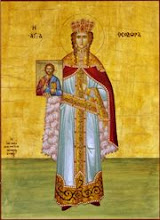Leo gave his report today.
He started out by asking people to tell him how much allowance they got. Then he divided the total by the number of people in the class, and told them that everyone would be getting an equal share. From each according to his means. To each according to his needs. This didn't go over so well, because it IS fair.
Then Leo asked for volunteers, and formed a labor brigade to do dangerous jobs like logging in Siberia, coal mining, sewage treatment. The next round of volunteers were forced into the army whether they were Pacifists or not. We shoot deserters.
Leo discussed the various crimes against humanity perpetrated by communist regimes, citing numbers of deaths according to The Little Black Book of Communism. He asked his classmates if they had a religion. About a third said they did. Then he told them that in the communist regime of Pol Pot in Cambodia, all of them would have been killed - and then the kids who could read - and then the kids with glasses. So far, there weren't going to be a lot people left in class to vote on a form of government.
We had helped Leo prepare a poster with graphs showing the number of deaths per year ((by hundred thousands) in the gulags of the former Soviet Union, and one of the pictures on his poster showed a sea of prisoners for as far as the eye could see, made up of Russian emigres who were captured by the Soviets after WWII and then executed as enemies of the state. A graph is completely impersonal, but a picture of thousands of people really brings the point home. Leo also had one of those famous pictures of mounds of skeletons from the Cambodia killing fields.
Then Leo discussed government price controls. If the government decideds that you can't charge more than a certain amount for your goods, and that means that you lose money on every transaction - there isn't a lot of incentive to produce goods. He had pictures of a bread line in the Soviet Union from early in the 20th century, pointing out the armed members of the cavalry guarding the line - and another picture of a bread line in the Soviet Union from 1990. He also had a picture of empty shelves in the stores in a major Russian city. I visited the Soviet Union in 1991, and there were lines for bread, guarded by members of the military who carried machine guns - and the shelves were bare in other stores.
Leo also talked about the environmental degredation in communist countries. Everything is done for the good of the state. Anyone who speaks out against the good of the state is a criminal. So, when the soviets diverted 2 rivers from flowing into the Aral Sea - there weren't protests. Now the Aral Sea is a series of salt water lakes.
He didn't have time to get into collective farming, because, being the eldest of 6, he really wanted to discuss the ramifications of China's one child policy. The elderly population is going to dwarf the number of youths contrbuting to their social welfare system in very few years. In some provinces, 130 boys are born for every 100 girls - thanks to liberal abortion policies that allow the abortion of a fetus simply because of its gender. And if that isn't enough, he also had a graph that showed the rate of female infant mortality - on top of the birth rate discrepency. China's interference in the family structure of its citizens is leading to some very awkward social problems.
Leo said that he was able to change many of the students' minds about how wonderful communism was, but there were still a few kids who thought that capitalism was evil. His teacher thanks him for sharing all of this information. There are 2 days of school left - so I doubt we will be getting in too much trouble.
When Leo was about 4, he asked us what communism was. His dad explained that everybody liked to play with toys, but some people had lots of toys and others had very few. Now, people might have had few toys because they just never had many to begin with or maybe they broke their toys or left them behind and were careless. And then, some of the people with lots of toys had received them as gifts, but others had saved birthday money or earned their own money to buy them. Under communism, the government could take away your brand new toy and give it to kid who had broken all his toys because that would mean that people would have the same amount of toys. Leo got really upset and said, "That's just too much sharing."

Bravo. That sounds like a phenomenal sixth-grader you have there. (With excellent parental resources.)
ReplyDeleteWhew! Pat that kid on the back! (And good job on getting another post up! lol)
ReplyDeleteWhat a great report. Congrats on a job well done. I haven't been here in quite some time. Looks like I picked the right day to come check it out again.
ReplyDelete